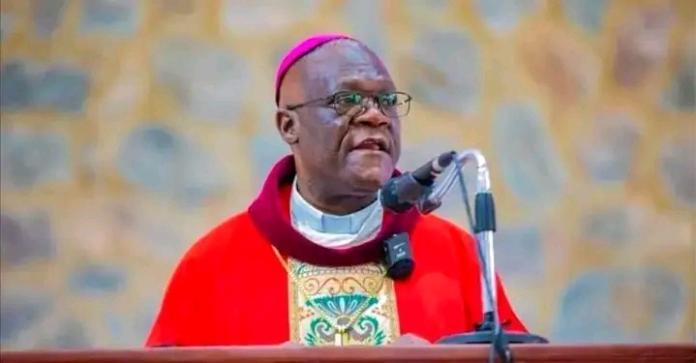Africa-Press – Zambia. Archbishop Dr. Alick Banda, head of the Catholic Church in Lusaka, has called on Zambians to pray for unity, peace, and an end to what he described as the politicisation of ethnic identities. In his homily marking the Feast of the Holy Archangels, he urged citizens to resist divisive politics and recommit to the founding principle of “One Zambia, One Nation.”
“That we will live true to the ideals and spirit of unity of purpose on which our founding Fathers and Mothers had built this republic,” he said, appealing for collective prayers through Archangels Michael, Gabriel, and Raphael.
His appeal comes at a volatile moment. Ethnic rhetoric has grown sharper in recent months, amplified by opposition figures accusing government of tribal bias and ruling party leaders dismissing critics as agents of division. Banda’s warning against hegemony built on ethnicity is in tune with public anxiety, but his track record complicates the reception.
The Archbishop has long been seen as politically aligned with the Patriotic Front (PF). He conducted the religious rites at Edgar Lungu’s funeral in South Africa even as the Zambian government worked to repatriate the body. His critics accuse him of turning legitimate calls for accountability into claims of tribal persecution, especially when political figures from the north and east face scrutiny.
That perception explains the mixed reactions to his statement. Some citizens welcomed the message as a timely reminder of Zambia’s unity. Others dismissed it as selective outrage, arguing that Banda has been silent on other forms of injustice, only raising his voice when PF interests are at stake.
What cannot be ignored is the weight of the pulpit in Zambia’s political space. Faith leaders have historically shaped national debates, from the fight for multiparty democracy in the 1990s to mediation during election crises. Banda’s words, therefore, are never just prayerful, they are political signals.
The Archbishop’s call for dialogue also reveals an unspoken divide: who gets to define unity. For government supporters, unity means rallying behind the current leadership. For PF-aligned voices, it means ending what they see as selective targeting of their regions. The result is a tug-of-war where even the national creed of “One Zambia, One Nation” risks being weaponised.
The broader question is whether Zambians can distinguish between genuine calls for national cohesion and partisan manoeuvres wrapped in religious language. History shows that unity has often been invoked by those under pressure, as both shield and sword.
For now, Banda’s prayer stands as both a plea and a provocation. It exposes the fragility of Zambia’s civic fabric at a time when politics is testing old bonds of nationhood. Whether his message heals or hardens divisions will depend on how both leaders and citizens interpret the Archbishop’s intent.
For More News And Analysis About Zambia Follow Africa-Press







